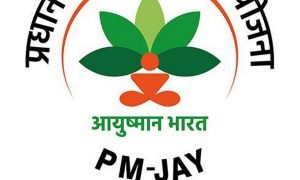The country’s coal production at 294.20 MT is reflecting a robust growth rate of 10.70% compared to the same period last year.
As of July 19, the Ministry of Coal has achieved production at 294.20 MT, reflecting a robust growth rate of 10.70% compared to the same period last year, which was 265.77 MT.
Read More: Petrol, Diesel Rates Today: Check Top City Wise Petrol Prices In India On 24th July 2024
Notably, for the fiscal year 2024-25, the Ministry has set an ambitious coal production target of 1,080 MT.
This positive trend underscores the Ministry’s commitment to meeting the energy demands of various sectors while maintaining a focus on sustainable economic development.
As per the data shared by the Ministry of Coal, in terms of coal dispatch, as of July 19, 2024, the coal dispatch has been at 311.48 MT, achieving a growth of 8.49% over the previous year, which was 287.12 MT.
Read More: Gold Rates Today: Check Top City Wise Gold Prices In India On 24th July, 2024
This increase in dispatch not only supports the operational needs of key industries but also contributes to the overall stability of the energy market.
The Ministry of Coal remains dedicated to ensuring that coal remains an affordable and accessible resource for all sectors of the economy, thereby reinforcing the nation’s commitment to growth and development.
The Coal Ministry said that by maintaining a steady and reliable supply, it aims to strengthen the country’s energy security and support key economic sectors.
Read More: Make Your Credit Card Bill Payments Online At AU Small Finance Bank
Through these strategic initiatives, it is poised to play a pivotal role in driving India’s economic progress, ensuring that the coal supply remains both adequate and cost-effective for reliant industries.
The Ministry of Coal, in coordination with the Ministry of Railways, Ministry of Power, and other relevant departments, is committed to ensuring an adequate supply of coal at notified prices for the Power and Fertilizer sectors.
Initiatives like working with the nation as a whole approach and breaking silos, extends to non-regulated sectors, including Steel, Cement, Paper, and Sponge Iron, which are vital for the country’s economic growth.





































